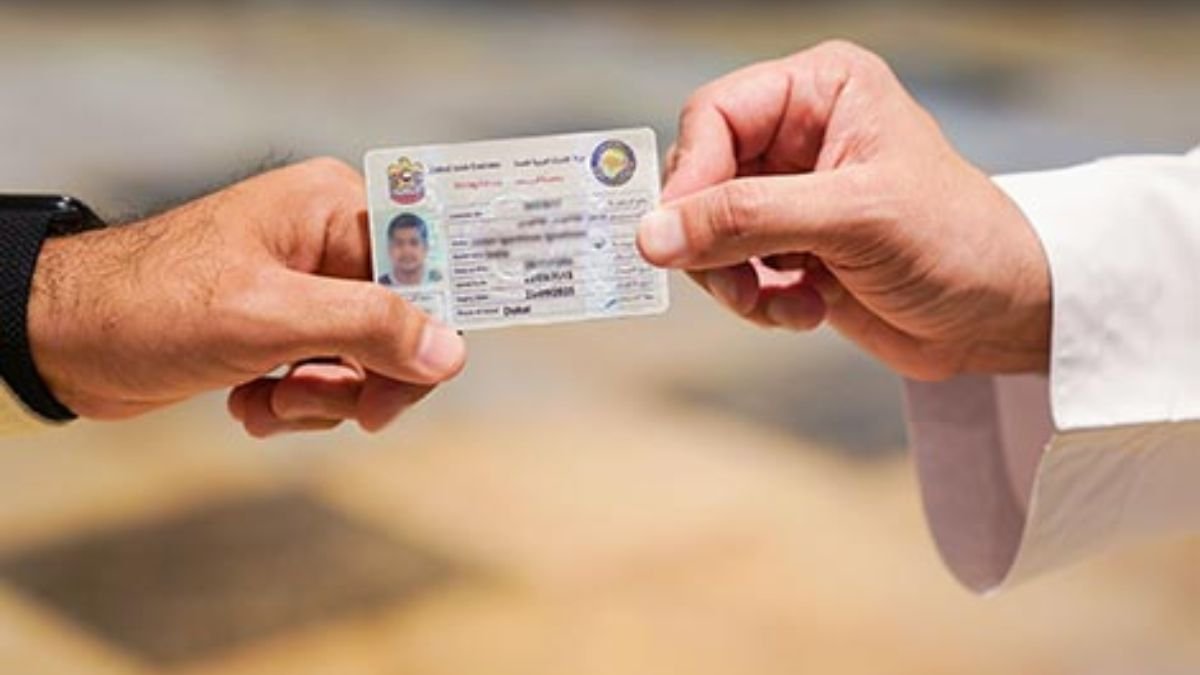Information
How to complain about salary delay in UAE

If you live and work in the UAE, you may have experienced salary delays. This can be a difficult situation to be in, and it’s important to know how to get your money back. In this article, we’ll talk about why salary delays happen and how to make sure you get paid properly and on time. We’ll cover the complaint process, from filing a complaint with the Ministry of Human Resources and Social Development (MOHRSD) to seeking legal action if necessary. Read on for tips on how to handle salary delays in the UAE.
Check your contract
If your salary is delayed, the first thing you should do is check your employment contract. Your contract will likely have a clause that states when you should expect to be paid. If your employer is not adhering to this schedule, they may be in breach of contract.
If you are able to resolve the issue with your employer directly, great! If not, you can file a complaint with the Ministry of Human Resources and Emiratisation (MoHRE). The MoHRE can investigate the matter and take action against your employer if they find that they have violated labour laws.
To file a complaint with the MoHRE, you will need to submit:
-Your original employment contract
-Evidence of the delayed salary payments (e.g. bank statements)
-A letter from your employer explaining the reasons for the delay
-Your passport and Emirates ID
-Any other relevant supporting documents
Speak to your boss
If you’re experiencing a delay in salary payments, it’s important to speak to your boss about the situation. Here are some tips on how to do so:
– Be polite and professional when you approach your boss. This is not a time to be confrontational.
– Explain the situation calmly and clearly. Let your boss know how long you’ve been waiting for your salary, and what financial difficulties this has caused you.
– Ask for a timeline of when you can expect to be paid. It’s important to get a clear understanding of when your salary will be processed.
– If your boss is unable to give you a definite answer, ask to speak to someone in HR or another senior staff member who can give you more information.
By following these tips, you’ll be able to have a productive conversation with your boss about the delay in your salary payments.
Go through the company’s internal complaint procedures
If you are experiencing a delay in salary payment from your company, it is important to first go through the company’s internal complaint procedures. These procedures will vary from company to company, but should be outlined in your employee handbook or on the company’s website. If you are unsure of how to proceed, speak with your HR department or manager.
Once you have followed the proper channels for filing a complaint, if you are still not satisfied with the response or resolution, you may file a complaint with the Ministry of Human Resources and Emiratisation (MoHRE). The MoHRE provides a helpful online guide for filing complaints, which can be found here: http://www.mohre.gov.ae/en/pages/complaints_guide.aspx.
Before taking any action, it is always advisable to consult with an experienced employment lawyer in Dubai to ensure that you are taking the best course of action for your particular situation.
Seek legal advice
Many residents in the UAE have to wait months, sometimes even up to a year, to receive their salary. This can cause immense financial hardship and stress. If you are in this situation, it is important to know your rights and how to complain about salary delay in UAE.
The first step is to try and resolve the issue directly with your employer. If you have been waiting for more than two months, you can file a case with the Ministry of Human Resources and Emiratisation (MOHRE). You will need to submit a complaint form, along with supporting documents such as your employment contract and payslips.
If your employer does not respond or if the MOHRE does not take action, you can file a case with the Labour Court. The court will require evidence such as witness statements, bank records, and contracts. It is important to get legal advice before taking this step, as the process can be complicated.
If you are successful in court, you may be entitled to receive your unpaid salary, plus interest and damages. However, it is important to note that many employers will simply close down their business rather than pay what they owe. In this case, you may not receive anything at all.
It is clear that complaining about salary delay in UAE is not a simple process. However, if you are patient and persistent, you may eventually get the justice you deserve.
File a case with the Ministry of Human Resources and Emiratisation
If your salary has been delayed, you can file a case with the Ministry of Human Resources and Emiratisation. You will need to provide the following information:
-Your name and contact information
-Your employer’s name and contact information
-The date your salary was supposed to be paid
-The amount of salary that was supposed to be paid
-A copy of your employment contract (if you have one)
-Any other relevant documentation or evidence
After filing a case, an investigator will be assigned to look into the matter. The investigator will contact your employer and request the outstanding salary payments. If your employer does not cooperate, the investigator may take legal action against them.
Conclusion
In conclusion, if you are an employee in the UAE and have experienced a delay in salary payment then it is important to know how to make a complaint. The best way to complain is through the Ministry of Human Resources & Emiratisation, who will be able to investigate your situation and ensure that everyone involved has acted appropriately. With their help, you can make sure that you receive your owed salary as soon as possible so that you no longer suffer financially.

Overview
Recently, the United Arab Emirates created a new visa on arrival policy. It is highly regarded as a systematised version of entry for any kind of tourist and the visitor who comes from India as well. The purpose and intention of this was solely to boost tourism of UAE and make access even more easier for Indian people and nationals.
Important Points and Features of this Policy
The new policy provides a visa on arrival for 60 days with multiple entries for Indian passport holders. These are not pre-arranged visas, making it easier for Indians to travel.
Eligibility Criteria
To be eligible for a visa on arrival, an Indian traveller must meet all the following criteria:
- Valid Passport: A passport valid for at least six months.
- Return Ticket: There must be a confirmed return or onward ticket.
- Adequate Funds: The government may request proof of adequate funds for the period of the stay.
Travel Planning
The new visa policy offers a lot more ease and friendly conditions, but the traveller needs to keep in mind the following:
COVID-19 Guidelines: The current health and safety regulations, including requirements for vaccination and testing, should be researched prior to travelling.
Travel Insurance: Travel insurance is also essential since it provides the much-needed leeway in the case of unexpected events that may surface.
Conclusion
The new visa on arrival by the UAE for its Indian nationals is a pioneering step taken to encourage more relaxed travelling and tourism. This article is a continuation of Times Bull in as much as eligibility criteria as well as other travel information that are to be gained before visiting the country is concerned.
Information
Can those on a visiting visa renew their UAE Driving licence?
Can those on a visiting visa renew their UAE licence?

Dubai: Many people have doubts about whether they can renew their UAE license after returning home after staying in Dubai for many years and after a while on a visiting visa. But Ashish Mehta, the founder and managing partner of Ashish Mehta and Associates, cleared the doubts in this regard. He answered this doubt of many people in Khaleej Times.
Your UAE driving license is issued by the Dubai Roads and Transport Authority when you reside in the UAE. But by law, the person must be a resident of the UAE to renew an expired UAE driving license of an expatriate above the age of 21.
Moreover, when applying for renewal of UAE driving license one must submit his original valid UAE Resident Identity Card, eye examination by an institution approved by the local authority and the relevant renewal fee to the RTA.
Also, if a person’s UAE driver’s license has not been renewed for more than ten years, he may be required to undergo a validation test to open a training file.
Along with this one has to pay application fee, handbook manual fee, RTA test fee, penalty for not renewing driving license on time, renewal fee and renewal fee to RTA for renewal of expired UAE driving license.
However, a non-resident cannot get a license. Application will not be accepted without UAE Resident Identity Card. Meanwhile, those who came on residence visa and not on visiting visa can apply.
For further clarifications on this matter, you may contact RTA
Courtesy: khaleej Times
India
MyAadhaar: A User-Friendly Website For Aadhaar Services
MyAadhaar: A User-Friendly Website For Aadhaar Services

The myAadhaar website is a one-stop shop for all your Aadhaar-related services. You can use the website to download your Aadhaar card, update your Aadhaar details, and order a PVC Aadhaar card. You can also use the website to find the nearest Aadhaar Seva Kendra and book an appointment.
The myAadhaar website is easy to use and navigate. The homepage has a clear and concise layout, and all the important links are easy to find. The website is also available in multiple languages, making it accessible to a wider range of users.
One of the best things about the myAadhaar website is that it is secure. All your personal information is encrypted and protected by a password. You can also use the website to generate a 16-digit Virtual ID (VID), which can be used in place of your Aadhaar number for online transactions.
Overall, the myAadhaar website is a user-friendly and secure platform for accessing your Aadhaar services. If you need to update your Aadhaar details, order a PVC Aadhaar card, or find the nearest Aadhaar Seva Kendra, the myAadhaar website is the best place to do it.
Here are some of the features of the myAadhaar website:
- Download your Aadhaar card
- Update your Aadhaar details
- Order a PVC Aadhaar card
- Find the nearest Aadhaar Seva Kendra
- Book an appointment at an Aadhaar Seva Kendra
- Generate a 16-digit Virtual ID (VID)
- Validate the status of your Aadhaar
- Submit feedback
Here are some of the benefits of using the myAadhaar website:
- Easy to use and navigate
- Available in multiple languages
- Secure
- Convenient
- Saves time and effort
If you need to access your Aadhaar services, I recommend using the myAadhaar website. It is a user-friendly and secure platform that makes it easy to get the services you need.













